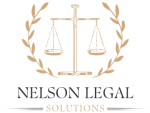Facing a legal challenge can be an overwhelming experience. Whether you’re dealing with personal injury, a contract dispute, or any other issue that requires legal attention, it’s easy to feel lost in the process. However, with the right tools, resources, and a proactive approach, you can navigate these challenges with confidence. Here’s a guide to help you understand the steps you can take to address complex legal situations.
1. Understand the Nature of Your Legal Issue
The first step in addressing any legal challenge is understanding the nature of your situation. Take the time to fully comprehend what you’re facing. Is it a personal injury case? A dispute over property or a contract? Understanding the details of your issue will give you a clearer idea of the steps that need to be taken and how to approach resolving it.
If you’re unsure of the details, don’t hesitate to research the topic. Reliable online resources, books, and local community organizations can provide you with helpful insights. The more you learn about your legal issue, the more empowered you will feel as you move forward.
2. Identify Available Resources and Support
Legal challenges can be emotionally and financially taxing, which is why it’s crucial to identify resources that can offer support. These resources could include nonprofit organizations, online guides, government agencies, and support groups that specialize in your particular issue.
For example, if you’re dealing with a consumer protection issue, there are many governmental agencies and consumer rights groups that provide free advice, tools, and resources to help guide you through the process. In cases of personal injury or accidents, there are various community groups, insurance support networks, and online platforms that can offer valuable information on how to proceed.
By seeking out these resources, you can gain clarity and better prepare for the challenges ahead.
3. Gather and Organize Your Documentation
Once you have a clear understanding of your situation and the resources available to you, the next step is to gather all relevant documents. This could include contracts, medical records, correspondence, accident reports, or any other documents related to your case.
Having organized documentation not only helps clarify your issue but also plays a crucial role if you need to file a claim, dispute a contract, or prove your case in any setting. The more comprehensive your documentation, the more effectively you can present your situation and increase your chances of success.
4. Explore Your Options for Resolving the Issue
There are usually multiple ways to resolve a legal issue, and knowing your options can make a big difference in the outcome. Depending on your situation, you might be able to resolve the issue through informal negotiation, filing a claim, or using mediation or arbitration.
For example, many personal injury cases are settled through negotiations with insurance companies or the responsible parties. Other disputes, such as those over contracts or property, may require formal legal proceedings, but there may still be alternatives such as mediation that can resolve the issue without going to court.
Exploring your options early on helps you make informed decisions and avoid unnecessary complications.
5. Take Action and Stay Informed
As you move forward, it’s essential to stay informed and proactive. Keep track of deadlines, important dates, and any required steps in your process. Whether it’s submitting forms, filing reports, or responding to communications, staying on top of your responsibilities ensures that your case moves smoothly.
In addition to handling the paperwork, it’s also important to stay up-to-date on any changes in the law or regulations that may impact your situation. Reliable online resources and local organizations can keep you informed and help you adjust your approach if needed.
6. Don’t Be Afraid to Seek Help When Necessary
While you may feel capable of handling your legal issue on your own, there are times when seeking additional guidance can make a difference. Whether it’s a trusted professional, a family member with experience in similar situations, or a support group, getting help can provide much-needed reassurance and clarity.
Remember, there’s no shame in asking for help, especially when it comes to navigating complex situations. Support from those who have been through similar challenges or from resources specifically designed to help individuals in your situation can help you stay grounded and focused.
Conclusion
Legal challenges don’t have to be faced alone, and with the right approach, they can be managed effectively. By understanding your issue, identifying available resources, staying organized, and exploring your options, you can approach even the most complex legal situations with confidence.
Stay proactive, informed, and open to seeking help when needed, and you’ll be well-equipped to navigate the path ahead. If you ever feel unsure about your options or need additional support, remember that there are resources out there to guide you every step of the way.

